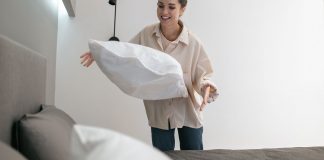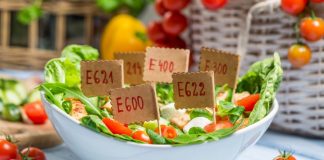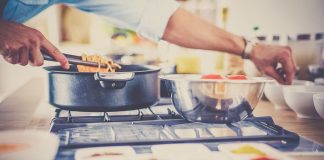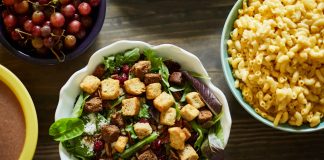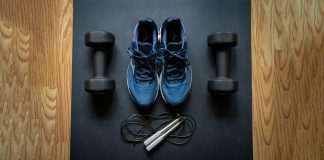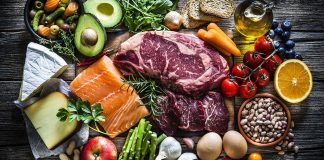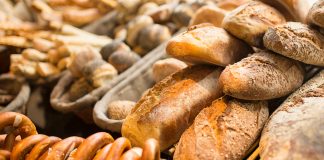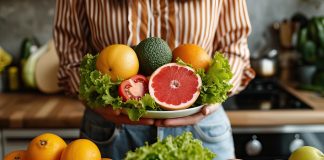COVID-19: Which end is The End?
As the crisis caused by the new coronavirus deepened and spread, it was to be expected that the phenomenon would be framed in apocalyptic terms. It is something that tends to occur in such contexts.
The fresh air advantage
It’s something many of us overlook, yet the research is showing that getting outside is better for us than we might imagine.
Why you should make your bed in the morning | Daily routine and its benefits
A daily routine can be an ace in the hole in the time crunch that modern people complain about. But our efforts to organise our time are rewarded with a host of benefits, including those related to our mental health.
Bittersweet
In terms of their effect on health, there is no difference between white and brown sugar. Sugar substitutes should not be consumed indiscriminately either.
Our daily E-numbers: an epidemic of suspicion (Part II)
The first part of this discussion essentially highlighted that, despite the alarming and catastrophic claims surrounding E-numbers, these substances are generally far less harmful than many believe. In the following section, we will examine some of the most criticised and controversial E-numbers in Romanian public discourse. Let’s begin with the one often described as “the most TOXIC/CARCINOGENIC additive”: E330.
11 million people die each year from these nutrition mistakes
From Europe to Asia and from Africa to the Americas and Australia, none of the culinary traditions, not even those acclaimed by scientists, generate an optimal supply of nutrients. Moreover, the food we eat daily kills 11 million of us prematurely every year. So then, what should we eat?
Fuel for health
Despite often being labelled as the main culprits for weight gain, carbohydrates are actually vital macronutrients, alongside proteins and fats. They provide the body with energy.
What Does the Bible Say About Contagious Diseases (like COVID-19)?
Since the outbreak of the corona virus pandemic, many people are asking faith-based questions. Is this a judgment of God on the human race? Is this a sign of the End? Does Bible prophecy speak about it? Even if people don’t believe in God or the Bible, they are wondering what their Christian neighbors are thinking about the matter.
Is weight regain after weight loss inevitable?
For anyone who has ever dieted to lose weight, weight regain is the most feared nightmare. Unfortunately, the very biology of those who lose weight predisposes them to weight regain, meaning that, despite their initial success, they are likely to regain the weight they lost. Fortunately, there are strategies that can help people fight against this tendency.
The lesser-known story of fats
For decades, fats have been considered unhealthy and have been associated with an increased risk of cardiovascular disease. However, recent research has revealed a more nuanced picture.
“I have no strength unless I eat meat.” True or false?
Physical strength is often automatically associated with meat consumption, and the association seems logical: doesn't the strength of the animal that has become food pass through digestion to the body that consumes it? This is the question we seek to answer in this article.
How pain heals
In the realm of health and wellness, few practices embody the principle of “no pain, no gain” quite like the revival of ice baths. Plunging into icy water might seem like a counterintuitive pursuit—a stark departure from the comforts of warm showers—but it’s precisely this discomfort that has drawn enthusiasts around the world.
Gluten under the microscope
Only people with specific gluten-related conditions—such as celiac disease, wheat allergy, or non-celiac gluten sensitivity—experience adverse reactions to gluten consumption.
Sexual abstinence: absurd, an option, or a necessity?
It was 1984 when hospitals in southern China were besieged by young people in a state of extreme agitation. Thousands of people, of both sexes, were suffering from panic attacks accompanied by fear of death because of the overwhelming belief that their sexual organs were retracting and disappearing, or that their nipples were retracting into their breasts.
Detoxification through the body’s own resources
In antiquity, rituals were used to purify both spirit and body. With advances in technology and the refinement of marketing techniques in recent decades, the idea of purification has been revived in the form of “detoxification,” a concept that capitalizes on people’s fears related to pollution, unhealthy diets, and sedentary lifestyles.














